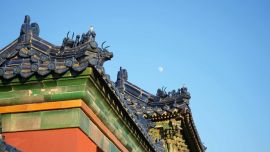Argentina’s Supreme Court delivered a political bombshell on Tuesday, dramatically suspending provincial elections in San Juan and Tucumán less than a week before voters were due to go to the polls.
The controversial ruling, signed by Supreme Court Justices Horacio Rosatti, Juan Carlos Maqueda and Carlos Rosenkrantz, was met with anger by the provincial governments and the Casa Rosada, which described the move as a “clear interference into the democratic process and autonomy of the provinces” in a statement.
The court blocked the votes in the northwestern provinces citing the "unconstitutionality" of the pro-government candidates, following a request by the local opposition parties.
The ruling was not unanimous, with the fourth member of the tribunal, Ricardo Lorenzetti, refusing to sign it. The court’s fifth bench is currently vacant.
The Supreme Court pitched its measure as “precautionary” and said it responded to a request for an investigation into the candidacies of Frente de Todos governors Sergio Uñac (San Juan) and Juan Manzur (Tucumán).
Uñac is seeking a third term as governor, having previously served as deputy provincial leader from 2011 to 2015, while Manzur is running on a ticket to be lieutenant-governor, after having served two terms each in the top and second post previously.
Ruling
The court ruling spoke of both candidates seeking a “fourth mandate” – echoing the language used by Argentina’s main opposition coalition, Juntos por el Cambio, which argues that the runs for office by Manzur and Uñac are unconstitutional.
It evoked the body's role in preventing anyone from "perpetuating in power" as justification for its decision. The supreme courts of the two provinces in question had authorised the elections.
"It is clear then that this electoral act could soon produce an institutional upheaval which would be difficult to repair. In view of this, this court must ensure, as a precautionary measure, that whatever the final ruling in the case, its fulfilment is still possible within the republican representative system that the provinces undertook to guarantee," the justices wrote.
"Given that a province is a defendant and that the plaintiff has seriously raised before this court a predominant federal issue, the process corresponds to the court's original jurisdiction," said Rosatti, Rosenkrantz and Maqueda, justifying their intervention.
The tribunal has given both provincial administrations five working days to file its response.
The national government reacted angrily to the ruling, citing its proximity to the local elections and accusing the court of collusion with the opposition.
"In a clear interference in the democratic process and the autonomy of the provinces, the Supreme Court today aligned itself with the opposition to anticipate what was foreseen as possible triumphs for Peronism in the provinces of San Juan and Tucumán next Sunday," said the Presidency in a statement issued three hours after the ruling was made public.
Right-wing presidential candidate Patricia Bullrich, who will stand in the opposition primaries later this year, applauded the court for blocking Manzur and Uñac, whom she accused of "believing themselves to be feudal lords and owners of their provinces."
Re-election?
In San Juan, Uñac is seeking a third consecutive term as governor. Uñac served as lieutenant-governor from 2011 to 2015 and governor from 2015-2019 and 2019-2023. Polls show he is likely to win re-election and the opposition has challenged his run in the courts, saying it is prohibited by the local constitution.
Unidos por San Juan – the alliance between PRO and UCR in that region – filed a declaratory action before the Supreme Court to challenge Uñac's candidacy, claiming that it ignores limits on the possibility of re-election established in Article 175 of the provincial Constitution and violating the republican principle of government as contemplated in the National Constitution.
This article states that "the governor and the lieutenant-governor have terms of four years in the exercise of their functions and can be re-elected consecutively up to twice."
The opposition also claims that Manzur is seeking a fourth consecutive term in Tucumán on similar grounds. The governor, who resigned his post as Cabinet chief (a position he took after requesting a leave of absence from his role as governor) earlier this year, served as lieutenant-governor for two terms and as governor for two terms before taking on his national role with President Alberto Fernández
The government argues that these terms total four terms and hence another run would be unconstitutional. The appeal was filed by Germán Enrique Alfaro, a local councillor and president of the Executive Board of the Partido por la Justicia Social ("Party for Social Justice”), who argues the candidacy is unconstitutional.



















Comments